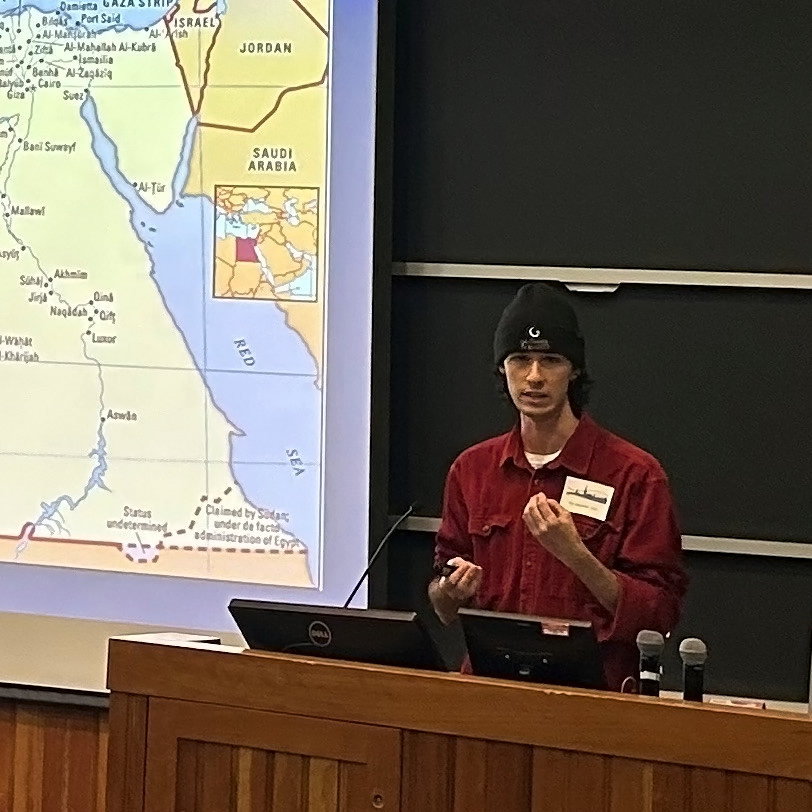Researching the History of Egyptian Bread—Per Alexander '24.5

CTLR Student Assistant Nitya Kaul ‘27 spoke with Per Alexander ‘24.5 about researching the history of Egyptian bread and presenting the project at the Spring Student Symposium.
Can you explain your research in a few sentences?
Yes, I was researching the history of bread in Egypt in the 19th and 20th century. Looking at it in parallel with the history of Egypt, the colonization of Egypt by Britain, the agricultural changes that the British imposed such as wheat, and how and when bread was eaten. The agricultural changes affected the bread’s composition and what bread meant in the culture, the Coptic church, and hospitality through bread. Discarded bread was treated with respect, one couldn’t just dump it. It also was looking at how the bread was used as a larger reflection of the Egyptian people.
Why were you interested in this particular topic?
It was a research paper for my class on North Africa, Middle East in the 1700s, 1800s, and 1900s. Our professor offered advice—to focus on one food and one region and trace the history of that food throughout the whole time period. Major primary sources in English were also a deciding factor when choosing my topic.
What advice do you have for other undergraduates who want to pursue similar research?
For me, it was sometimes hard in the process, but now I have an amazing end project. At a place like Middlebury, imposter syndrome is very real and to have a tangible essay and present it was a cool feeling. Having a kind, helpful professor who gives good feedback like Febe Armanios, was really helpful too.
What class, professor was the research for?
The research was for the history major, which is my major. It was not a thesis but almost like a junior thesis. It was a history 600 course, which means that you spend the whole semester doing one research project.
What was your experience presenting at the Spring Symposium?
Really cool. I enjoyed sharing my semester-long process, after having some space from it. I had taken the class in the fall and was presenting in the spring. I also found it very interesting the way other presenters were grouped in my session. The topics were bread, religious studies research, being gay in the Bible, and some research on Buddhism. The presentation itself was exciting, especially because I enjoy giving presentations and connecting with people. The process of choosing was interesting, because I got to decide what parts stay in the 10-minute window I was given to present. I could choose my most favorite and interesting parts to talk about.
What skills did undergraduate research give you?
Self pacing, making my own schedule and deadlines. There are only a few checkpoints so you have to be focused on helping yourself. Create structure for yourself and be accountable for your self imposed deadlines. This system helped me with procrastination.
What was the hardest and most fun part of the whole project?
The hardest part for me was the pacing and self deadlines because I had a busy schedule and sometimes procrastinated. The fun part was presenting at the symposium, in spring. I got to enjoy the best part of research—talking and connecting with people about it! I am now in an Egyptian history class so there is amazing connectivity with my research. It was cool to see others’ research, a culmination of everybody’s project.
Find out more about Undergraduate Research at go.middlebury.edu/ur and presenting at the Spring Student Symposium at go.middlebury.edu/sym.

